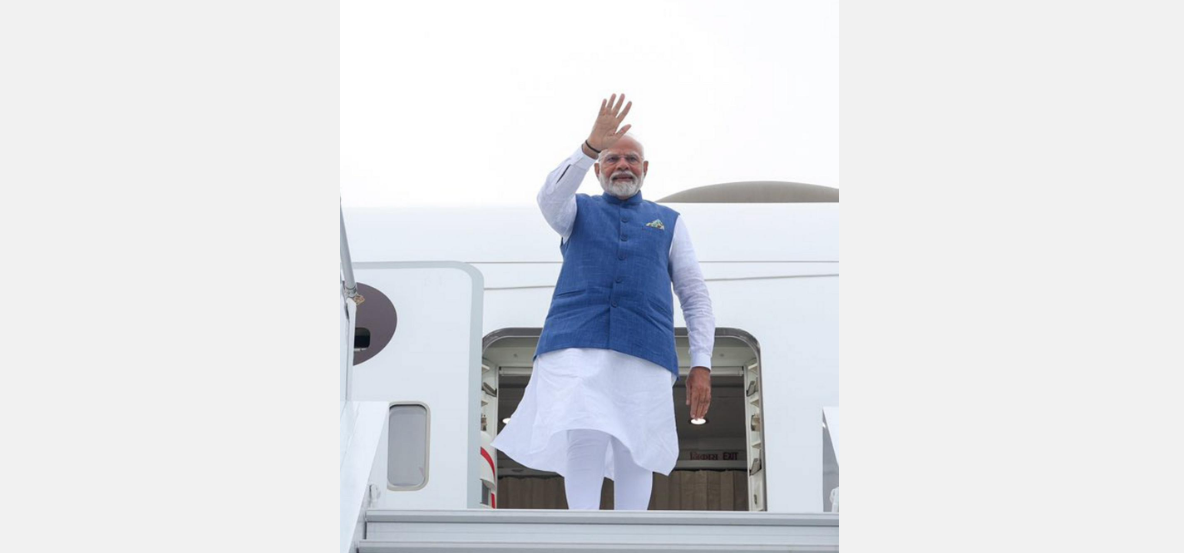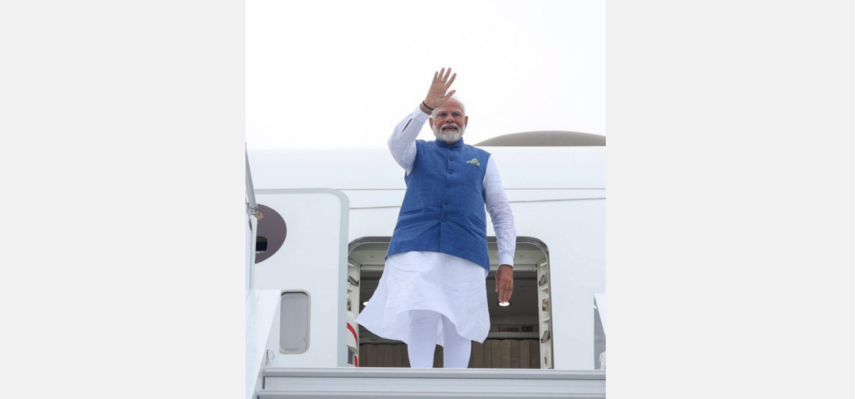New Geopolitical Era Prime Minister Narendra Modi’s upcoming visit to Ukraine holds profound significance for India’s defense strategy and its broader geopolitical posture. This visit is not merely a diplomatic endeavor but a calculated move to deepen ties in defense manufacturing between India and Ukraine. Given the current global landscape, where the ramifications of the Russia-Ukraine war continue to unfold, India’s focus on diversifying its defense partnerships has never been more critical. With a large inventory of military equipment of Ukrainian origin, India is keen to not only maintain these assets but also explore new avenues for collaboration, innovation, and self-reliance in defense manufacturing.
New Geopolitical Era Historical Context of India-Ukraine Defense Relations
India’s defense relationship with Ukraine dates back to the Soviet era, when Ukraine was a key part of the Soviet Union’s military-industrial complex. After the dissolution of the Soviet Union in 1991, Ukraine inherited a substantial portion of the Soviet defense industry, which included the production of advanced military equipment, aircraft, and weapons systems. Over the years, India has procured a variety of military hardware from Ukraine, including T-80 tanks, AN-32 transport aircraft, and R-27 air-to-air missiles.
This relationship has been mutually beneficial, with Ukraine providing India with essential military equipment and India ensuring the upkeep and modernization of its Soviet-era defense inventory. However, the outbreak of the Russia-Ukraine war in 2022 posed significant challenges for this partnership, disrupting supply chains and creating uncertainties regarding the availability of military components from Ukraine.
Impact of the Russia-Ukraine War on India’s Defense Strategy
The Russia-Ukraine war brought to light the vulnerabilities associated with India’s heavy reliance on foreign suppliers for its defense needs. The conflict disrupted traditional supply chains, especially those connected to Ukraine, leading to delays in the delivery of critical military equipment and spare parts. Recognizing these vulnerabilities, India has been compelled to reassess its defense procurement strategy and take steps towards greater self-reliance.
In the immediate aftermath of the war, India turned to indigenous sources and diversified its vendor base to mitigate the shortages caused by the conflict. This included accelerating the “Atmanirbhar Bharat” (Self-Reliant India) initiative, which aims to reduce India’s dependency on foreign defense suppliers and boost domestic manufacturing capabilities. PM Modi’s visit to Ukraine is expected to further these objectives by exploring new opportunities for collaboration in defense manufacturing, technology transfer, and joint ventures.
Key Objectives of PM Modi’s Ukraine Visit
PM Modi’s visit to Ukraine is expected to focus on several strategic objectives, all aimed at strengthening defense cooperation between the two nations. These objectives include:
- Exploring Joint Ventures in Defense Manufacturing
One of the primary goals of the visit is to explore the potential for joint ventures between Indian and Ukrainian defense firms. Such collaborations could involve co-production of military hardware, sharing of expertise in advanced manufacturing techniques, and development of new technologies that cater to the specific needs of the Indian armed forces. Joint ventures would not only enhance India’s defense capabilities but also contribute to the growth of its domestic defense industry. By leveraging Ukraine’s expertise in areas like aircraft manufacturing, missile technology, and armored vehicles, India can accelerate the development of indigenous solutions that reduce its dependence on foreign suppliers.
- Negotiating Technology Transfer Agreements
Technology transfer is another critical aspect of the defense cooperation expected to be discussed during PM Modi’s visit. India has long sought access to advanced technologies that can be integrated into its defense manufacturing ecosystem. Ukraine, with its rich heritage in military technology, is well-positioned to offer such expertise. Technology transfer agreements could facilitate the development of cutting-edge military systems in India, including missile systems, aircraft engines, armored vehicles, and naval vessels. These agreements would enable Indian defense firms to acquire the know-how required to produce advanced equipment locally, thereby strengthening India’s defense industrial base.
- Establishing Manufacturing Facilities in India
As part of the broader effort to enhance indigenous defense production, PM Modi’s visit may also explore the possibility of establishing Ukrainian-owned or jointly-owned manufacturing facilities in India. These facilities could be dedicated to the production of specific components or entire systems that are currently imported from Ukraine or other countries. The establishment of such facilities would not only reduce India’s reliance on foreign suppliers but also create jobs and contribute to the local economy. Moreover, it would align with the “Make in India” initiative, which aims to transform India into a global manufacturing hub, including in the defense sector.
Diversification of Defense Partnerships
PM Modi’s visit to Ukraine is also indicative of India’s broader strategy to diversify its defense partnerships in the wake of the Russia-Ukraine conflict. While Russia has historically been India’s primary defense partner, the ongoing war and the resulting geopolitical shifts have prompted India to seek new alliances and sources of military equipment.
- Expanding Beyond Traditional Partners
India’s traditional defense partners, including Russia, the United States, and France, have played a significant role in shaping its military capabilities. However, the changing global landscape necessitates a more diversified approach to defense partnerships. By engaging with countries like Ukraine, India can tap into new sources of technology, expertise, and military hardware. This diversification strategy also allows India to navigate the complexities of international diplomacy, where aligning too closely with any one country could have repercussions for its relations with others. By maintaining a broad network of defense partnerships, India can pursue its strategic interests while minimizing the risks associated with over-reliance on a single partner.
- Building a Resilient Defense Supply Chain
The disruptions caused by the Russia-Ukraine war highlighted the vulnerabilities of relying on a limited number of suppliers for critical military equipment. India has since recognized the importance of building a more resilient defense supply chain that can withstand global shocks and geopolitical uncertainties. PM Modi’s visit to Ukraine is likely to focus on identifying areas where Ukraine can play a role in this diversified supply chain. This could include the supply of spare parts, maintenance services, and upgrades for existing Ukrainian-origin equipment in India’s inventory, as well as the co-production of new systems that meet India’s defense requirements.
The Role of Indigenous Defense Production
While PM Modi’s visit to Ukraine underscores the importance of international partnerships in defense manufacturing, it is also closely tied to India’s ongoing efforts to boost indigenous defense production. The “Atmanirbhar Bharat” initiative has placed a strong emphasis on reducing India’s dependency on foreign suppliers and developing a self-reliant defense industry.
- Aligning with Atmanirbhar Bharat
The collaboration with Ukraine is expected to complement India’s Atmanirbhar Bharat goals by providing access to critical technologies and manufacturing capabilities that can be integrated into the domestic defense sector. By working with Ukrainian firms, Indian defense manufacturers can enhance their capabilities and develop systems that are tailored to the specific needs of the Indian military. This alignment with Atmanirbhar Bharat is not only about reducing imports but also about fostering innovation and developing new technologies that can be exported to other countries. By becoming a producer of advanced military equipment, India can position itself as a key player in the global defense market. 
- Enhancing Research and Development
One of the key challenges in achieving self-reliance in defense production is the need for continuous research and development (R&D) to keep pace with evolving military technologies. Ukraine’s experience in defense R&D could prove invaluable in this regard. Collaborative R&D projects between Indian and Ukrainian institutions could lead to the development of new systems and technologies that address emerging threats and challenges. By investing in joint R&D initiatives, India can accelerate the development of next-generation military capabilities, including artificial intelligence (AI), cyber warfare, unmanned systems, and advanced sensors. These capabilities are essential for maintaining a technological edge in modern warfare.
Navigating Geopolitical Complexities
PM Modi’s visit to Ukraine also takes place in a complex geopolitical environment, where India’s relationships with both Russia and the West are of critical importance. Ukraine’s strategic position, its ongoing conflict with Russia, and its relations with Western powers make this visit a delicate diplomatic endeavor.
- Balancing Relations with Russia and Ukraine
India’s long-standing defense relationship with Russia is a key factor in its approach to Ukraine. While India seeks to deepen ties with Ukraine in defense manufacturing, it must also carefully manage its relationship with Russia, which remains a vital partner in many areas, including defense, energy, and geopolitics. India’s neutral stance in the Russia-Ukraine conflict has been a subject of international scrutiny, with both sides looking to secure India’s support. PM Modi’s visit to Ukraine will likely be closely watched by Moscow, and India will need to navigate this relationship with caution to avoid any diplomatic fallout.
- Engaging with Western Powers
Ukraine’s closer ties with Western powers, particularly the United States and the European Union, also play a role in India’s strategic calculus. By engaging with Ukraine, India can strengthen its ties with Western countries, which have expressed interest in expanding defense cooperation with India. This engagement with Western powers is part of India’s broader strategy to balance its relations with major global players while pursuing its own strategic interests. The defense cooperation with Ukraine could serve as a bridge to deeper collaboration with NATO countries, especially in areas such as military technology, cybersecurity, and counterterrorism.
Economic Implications of Defense Cooperation
The deepening of defense ties between India and Ukraine also has significant economic implications. The defense industry is a major contributor to economic growth, and the collaboration between Indian and Ukrainian firms could lead to the creation of new jobs, the development of ancillary industries, and the generation of export revenue.
- Job Creation and Industrial Growth
The establishment of joint manufacturing facilities and the co-production of military equipment in India could create thousands of jobs, both directly and indirectly. These jobs would span a range of sectors, including engineering, manufacturing, research, and services. The growth of the defense industry would also stimulate the development of ancillary industries, such as suppliers of raw materials, components, and logistics services. By fostering a robust defense manufacturing ecosystem, India can enhance its industrial capabilities, promote innovation, and reduce its reliance on imports.
- Boosting Exports
As India’s defense manufacturing capabilities grow, there is significant potential for exporting military equipment and systems to other countries. The collaboration with Ukraine could lead to the development of advanced systems that are competitive in the global market. By exporting these systems, India can generate revenue, strengthen its geopolitical influence, and contribute to global security. The expansion of defense exports is a key component of India’s strategy to become a net exporter of military equipment and reduce its trade deficit.
Conclusion
PM Modi’s visit to Ukraine represents a pivotal moment in India’s defense strategy and its broader geopolitical ambitions. By deepening ties with Ukraine in defense manufacturing, India is taking a significant step towards achieving self-reliance in defense production, diversifying its defense partnerships, and enhancing its technological capabilities. The collaboration between India and Ukraine has the potential to transform India’s defense industry, create economic opportunities, and strengthen its position on the global stage.
As India navigates the complex geopolitical landscape, it must carefully balance its relationships with Russia, Ukraine, and Western powers while pursuing its strategic objectives. The success of this visit will be measured not only by the agreements signed but also by the long-term impact on India’s defense capabilities and its ability to respond to emerging security challenges. By forging a strong defense partnership with Ukraine, India can pave the way for a more secure and self-reliant future. ALSO READ:- Sandip Ghosh CBI Permitted to Conduct Polygraph Tests on Former R.G. Kar Medical College Principal Sandip Ghosh and Four Other Doctors 2024





